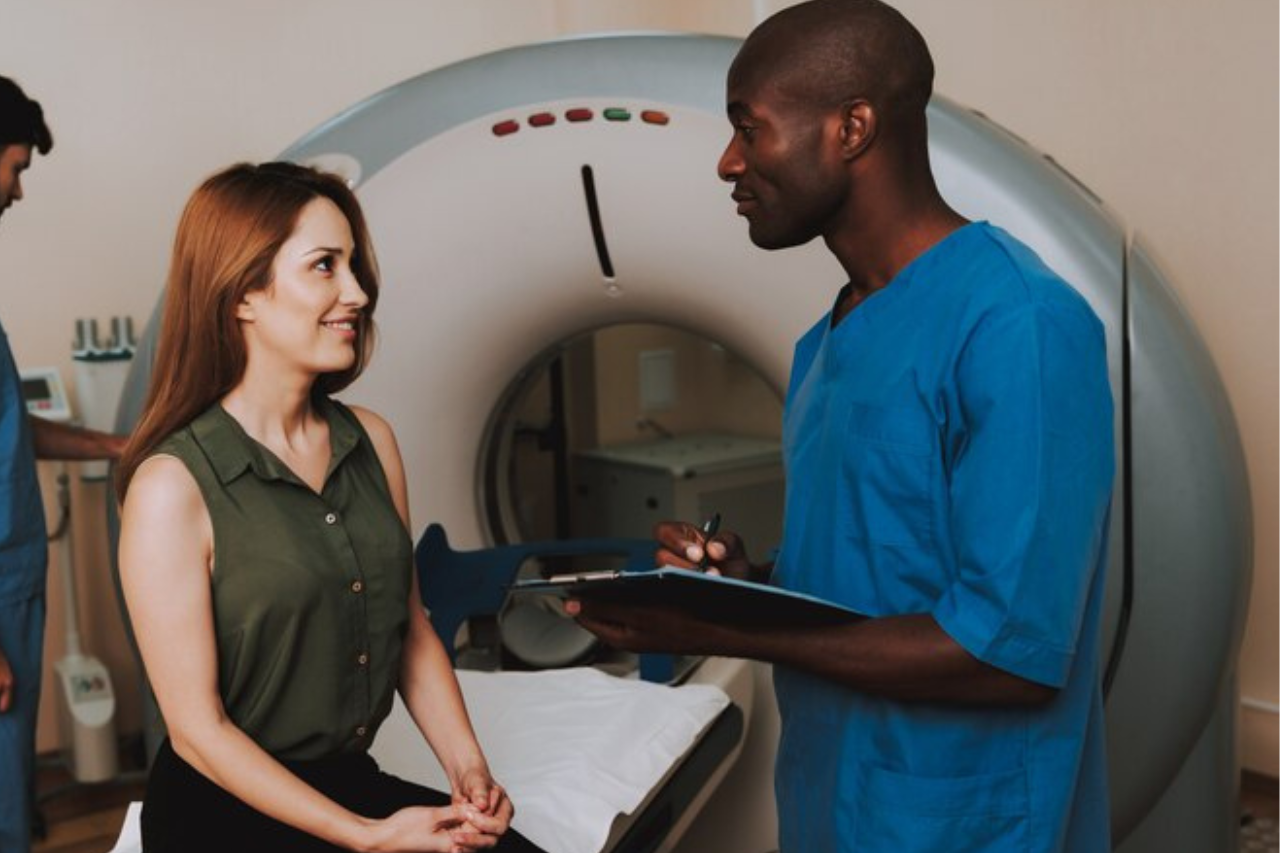

In the field of medical imaging, terms like radiography and radiology often come up, especially for patients seeking diagnosis or treatment. Although these terms are frequently used interchangeably, they represent distinct areas in medical imaging. Here, we will clarify the differences between radiography and radiology, helping patients at CMH, a trusted radiology hospital in Freetown, understand these essential diagnostic tools.
Radiography refers specifically to the imaging technique that uses X-rays to produce images of the internal structures of the body. In simpler terms, it’s the process of taking X-ray images, commonly used to view bones, lungs, and soft tissues. Radiography is often the first step in the diagnostic process, providing doctors with essential images to analyze and diagnose issues accurately.
Types of Radiography: The most common type is plain radiography or X-ray imaging, which is often used to examine broken bones, lung infections, and digestive issues. Another advanced type is computed tomography (CT), which uses multiple X-ray images to create detailed 3D images.
Procedure: The procedure involves placing the body part of interest between the X-ray source and a detector. When the X-rays pass through the body, they create a detailed shadow-like image that reveals various structures.
Radiographers: Radiography is performed by radiologic technologists or radiographers. They are trained to operate the imaging equipment safely and efficiently and to handle patient needs during the imaging process.
If you’re looking for X-ray imaging near me, CMH in Freetown provides high-quality radiographic services, ensuring that patients receive accurate images promptly and comfortably.
Radiology is a broader field that encompasses not only imaging techniques like radiography but also the interpretation and analysis of these images to diagnose and treat medical conditions. It’s an entire branch of medicine dedicated to understanding medical images, from X-rays to MRIs and ultrasounds.
Scope of Radiology: Radiology includes various imaging methods such as magnetic resonance imaging (MRI), ultrasound, CT scans, and nuclear medicine. Radiologists often work with radiographic images but are also qualified to perform and interpret other types of scans.
Radiologists: Unlike radiographers, radiologists are specialized doctors who have undergone extensive training to interpret medical images and use these findings to guide treatment. They analyze the images produced by radiography and other imaging techniques and provide diagnoses or treatment plans based on these insights.
By visiting a reputable radiology clinic like CMH, patients in Freetown can benefit from expert radiologists who will not only perform the necessary imaging tests but also offer comprehensive diagnoses based on the results.
Now that we’ve outlined the basics, let’s delve into the core distinctions between radiography and radiology:
Scope of Practice:
Radiography: Focuses solely on obtaining images using X-rays or similar techniques.
Radiology: Encompasses a wide array of imaging technologies, and the field also includes the interpretation of these images to diagnose and treat diseases.
Professionals Involved:
Radiography: Managed by radiographers or radiologic technologists trained to handle imaging equipment.
Radiology: Overseen by radiologists, who are medical doctors trained to analyze and interpret imaging results.
Purpose:
Radiography: Primarily diagnostic, aimed at providing detailed images of specific body parts.
Radiology: Both diagnostic and therapeutic, as radiologists can recommend further treatment based on image interpretation.
Types of Equipment:
Radiography: Uses X-ray machines and basic imaging equipment.
Radiology: Involves advanced imaging technologies like MRI, CT, ultrasound, and nuclear imaging.
Training and Expertise:
Radiographers: Typically require a bachelor’s degree in radiologic technology.
Radiologists: Need to complete medical school and specialize further in radiology, often completing additional years in residency and fellowships.
When in need of reliable imaging services, it’s essential to choose a hospital equipped with the right technology and a skilled medical team. CMH, a leading radiology hospital in Freetown, offers comprehensive imaging services. Patients benefit from the expertise of both radiographers and radiologists, ensuring not only accurate images but also expert interpretations and care plans. This holistic approach enhances diagnosis and treatment outcomes, whether it’s for assessing broken bones, identifying organ conditions, or planning further medical procedures.
At CMH in Freetown, we prioritize quality, patient comfort, and accuracy. Our facility is staffed with certified radiographers and experienced radiologists who work together to provide high-quality diagnostic imaging services. From basic X-ray imaging near me to advanced MRI scans, CMH is equipped to meet all radiological needs. Here’s what makes CMH the ideal choice:
State-of-the-Art Equipment: We use the latest imaging technology, ensuring clear and precise images.
Expert Team: Our radiologists have years of experience in interpreting complex images and developing personalized care plans.
Patient-Centered Care: We understand that diagnostic procedures can be daunting, and our team is dedicated to making each patient feel comfortable throughout the process.
Understanding the difference between radiography and radiology can be vital for patients seeking the right kind of diagnostic support. Radiography focuses on producing images, while radiology involves both image production and interpretation. By choosing a trusted radiology hospital in Freetown like CMH, you gain access to comprehensive diagnostic services, expert analysis, and patient-centred care. Whether you need a basic X-ray or advanced imaging, CMH is here to help.
For more information or to schedule an appointment, contact CMH today and experience exceptional diagnostic care.